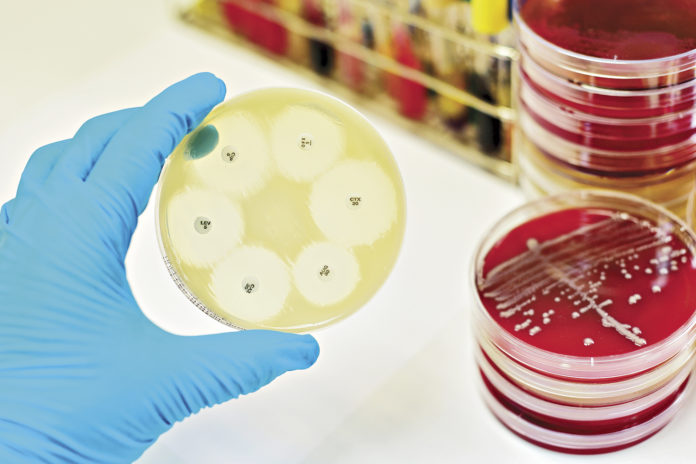By Dr. Steven J. Hoffman and Dr. Charu Kaushic
Discovering antibiotics in 1928 was among the most significant health advances in history, as it finally equipped humanity with a simple and effective treatment for bacterial infections. Until then, bacterial infections were commonly treated through amputation of the infected body part – and often resulted in death.
For decades, we lived a relatively carefree existence with regard to bacterial infections, knowing that we had readily available antibiotics as a dependable line of defence. Unfortunately, through over-use, our antibiotics are no longer working as they should. The bugs have evolved into superbugs that have grown impervious to our treatments – a process known as antimicrobial resistance.
A typical scenario goes something like this: a patient is admitted to hospital for a medical procedure – say, a hip replacement or mastectomy. Following surgery, the patient develops an infection. The doctor administers antibiotics to treat the infection, but the bacteria have developed immunity to that particular drug. The doctor then tries second, third, or fourth-line treatments in an attempt to stop the infection. In some cases, one of those alternatives works and the patient is saved. In other cases, the infection spreads to the blood, and the patient dies.
According to a new Council of Canadian Academies report, around 26 per cent of bacterial infections in Canada are currently resistant to antibiotics, which caused 5,400 deaths in Canada last year (similar to Alzheimer’s disease), $1.4 billion in extra health care costs, and $2 billion in lost GDP.
But this rate of resistance is increasing. If the rate reaches 40% by 2050 – a likely scenario – that would mean a cumulative 396,000 deaths in Canada from antimicrobial resistance between now and then, along with $120 billion in extra hospital costs and $388 billion in lost GDP.
The time has come for governments around the world to take this threat seriously – and to take serious action – if we are to avert this public health crisis.
Action begins with ensuring access. There are still millions of people around the world who lack access to life-saving antibiotics. In our increasingly interconnected world, this has implications for all of us, as superbugs know no borders, and a drug-resistant microbe in one country is just a flight away from spreading to other countries.
The second step is conservation. We need to protect the effectiveness of our existing antibiotics, because each unnecessary use – whether in humans, animals, or agriculture – accelerates resistance. Antimicrobial resistance is a natural and continual evolutionary process; however, the acceleration of antimicrobial resistance – the human health problem – is something that we can manage. For doctors and veterinarians, this means prescribing antibiotics responsibly. For citizens, this means not demanding antibiotics for simple coughs and colds – for which we are usually better off staying home, drinking lots of liquids, and getting rest.
The final step is innovation. We currently have an innovation problem, as we do not have successful models for incentivizing the development of new antibiotics, alternatives to their use, and strategies for conserving them. Conversely, superbugs excel at innovation – they continuously evolve. We humans need to be smarter than the superbugs. We need to stop playing catch-up, get ahead of our opponent, and maintain the lead.
This November 18-24 is the United Nations’ World Antibiotic Awareness Week – an opportunity to bring further attention to this issue. By encouraging such conversations, it is our hope that we will see a growing sense of urgency and momentum toward finding solutions. Canada, for its part, is taking a leadership role in mobilizing expertise and research to tackle this challenge. A Pan-Canadian Action Plan for Antimicrobial Resistance is under development and will provide a roadmap for action. Canada is also home to many leading scientists who are experts in this field and have much to contribute to the development of new antibiotics, alternative treatments and conservation strategies.
What we do know is that this challenge will not be solved with existing tools. If we hope to return to a world where we can count on antibiotics when we need them, we need new knowledge, new drugs, and a commitment to act internationally as a unified global community.
Dr. Steven J. Hoffman and Dr. Charu Kaushic are the Scientific Directors of the Institute of Population & Public Health and the Institute of Infection & Immunity, respectively, with the Canadian Institutes of Health Research – the Government of Canada’s health research funding agency.




